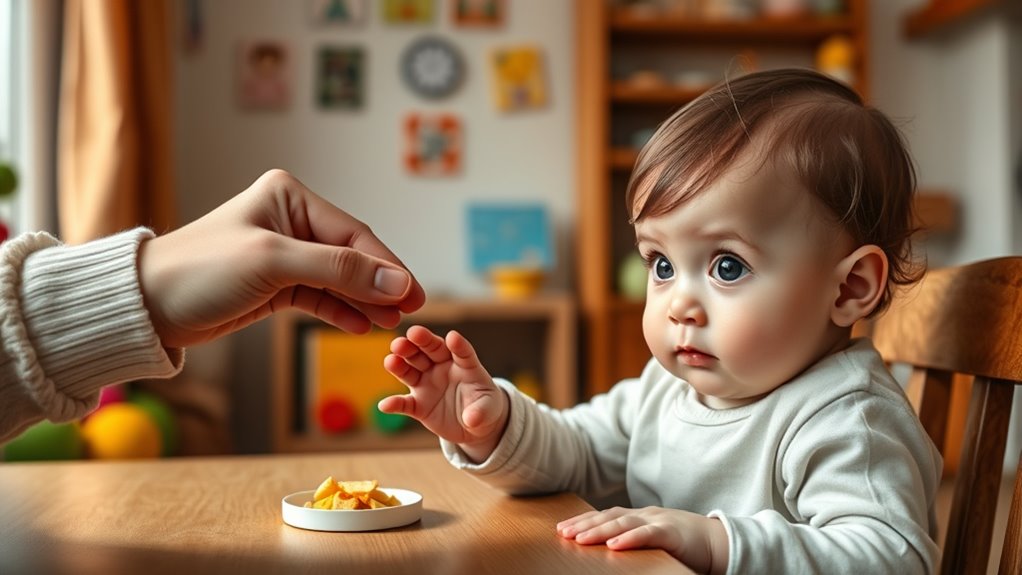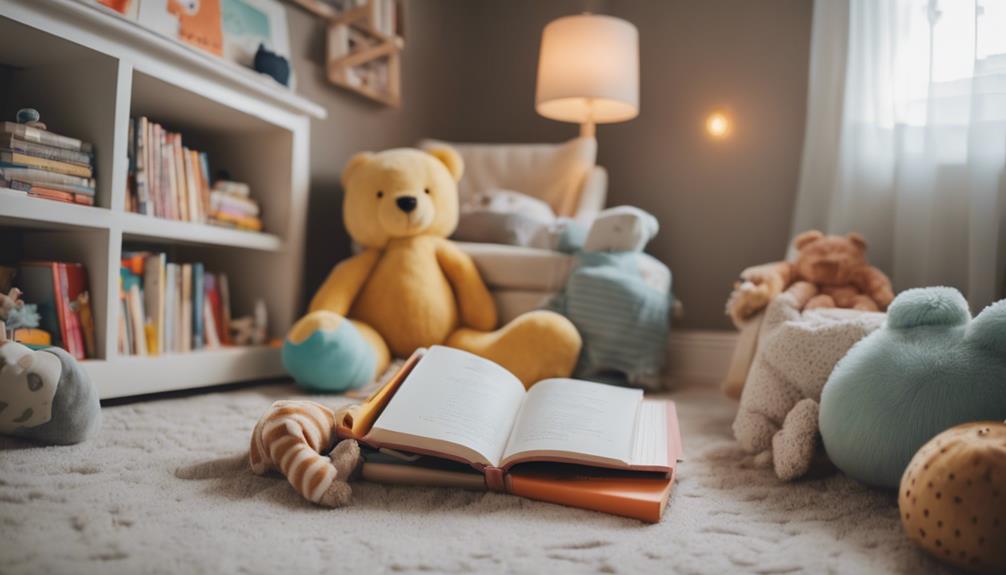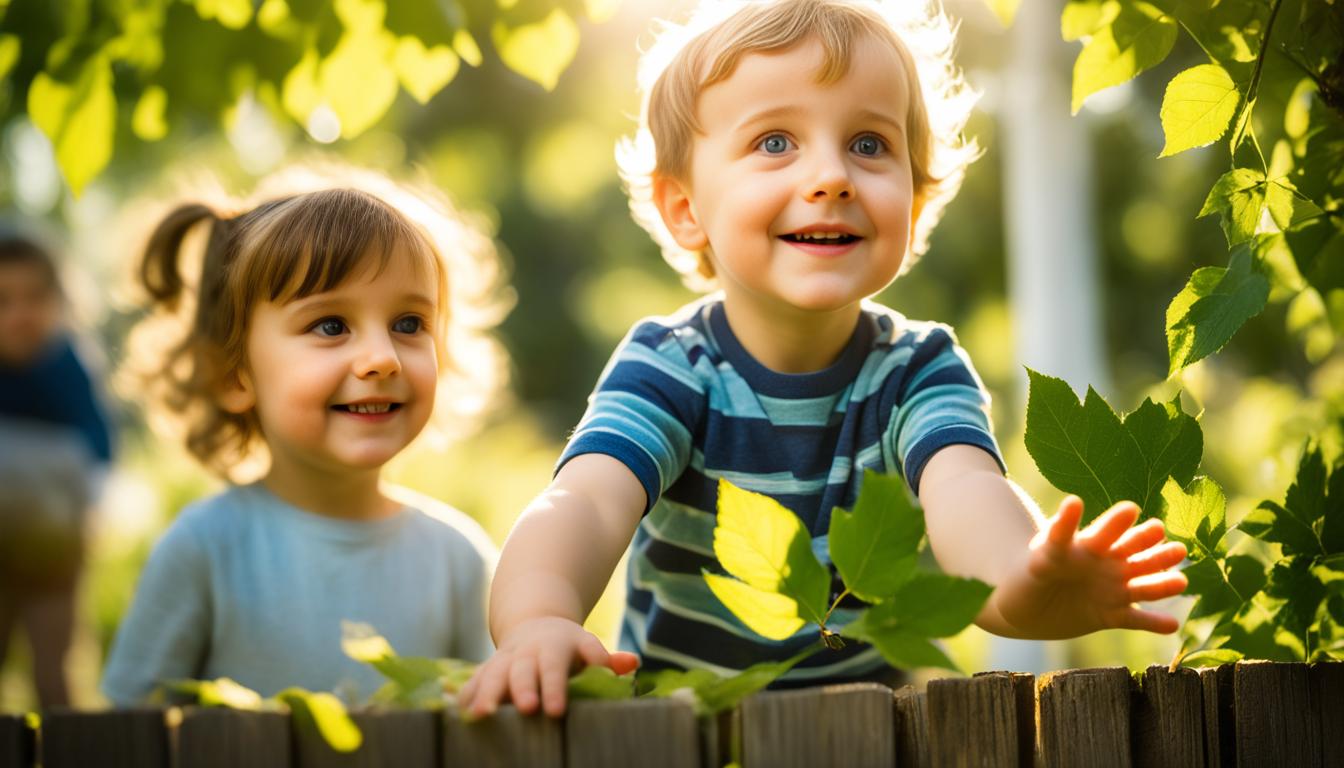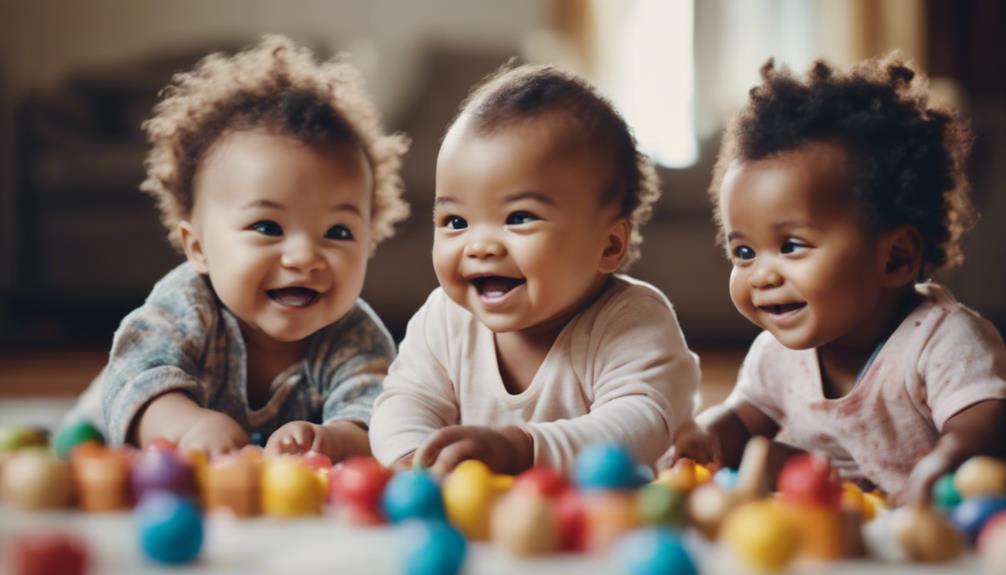You can start teaching your baby basic manners like saying “please” and “thank you” as early as 12 to 18 months by modeling polite behavior and using social cues. Babies learn best through imitation, so responding with warmth and patience helps them connect words with positive actions. Consistent gentle repetition and noticing their social signals encourage understanding. Keep engaging with these simple cues, and you’ll discover more ways to nurture their social skills as they grow.
Key Takeaways
- Babies begin to observe social cues and respond to polite behavior around 6-12 months.
- Introducing simple manners like “please” and “thank you” can start as early as age 2.
- Repetition, modeling, and positive reinforcement help children understand and adopt manners over time.
- Recognizing social cues such as smiles and gestures supports early social awareness and politeness.
- Consistent, patient teaching fosters internalization of manners, leading to respectful behaviors in later childhood.
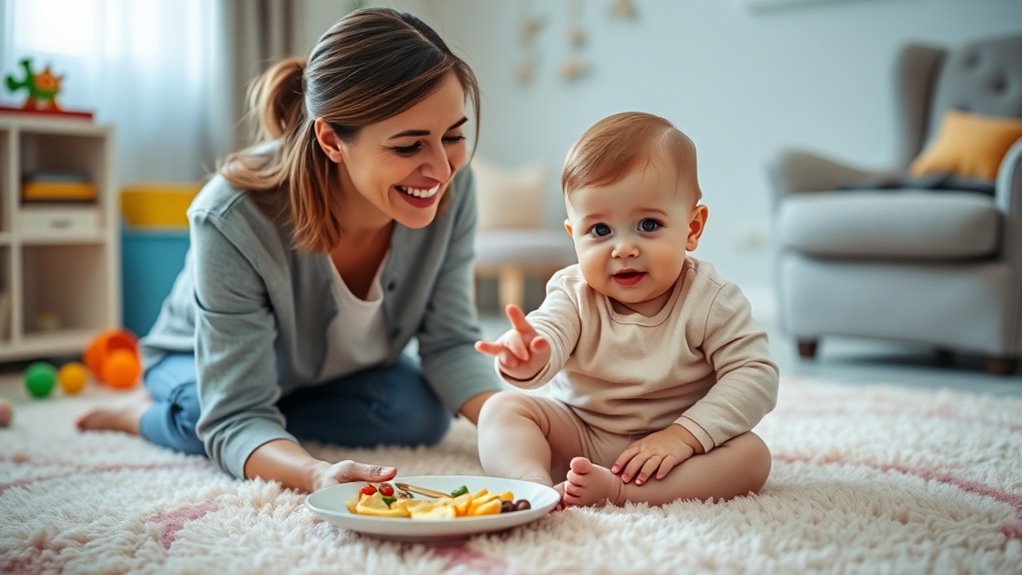
Have you ever wondered how to start teaching your baby good manners early on? The journey of politeness development begins much sooner than many parents realize. Babies are natural observers, so they start picking up on social cues long before they can speak. When you respond to your little one’s needs with warmth and patience, you’re laying the groundwork for understanding politeness and social interactions. As they watch you say “please” and “thank you,” they begin to associate these words with positive actions and feelings, even if they haven’t mastered pronouncing them yet. Introducing manners early helps your baby recognize social cues — subtle signals like a smile, a nod, or a gentle gesture — that indicate what’s expected in different situations. These cues are the building blocks of polite behavior, and your consistent reactions teach your child how to interpret and respond appropriately.
Politeness development isn’t about expecting a toddler to fully grasp manners overnight. Instead, it’s about creating an environment where your baby can observe and imitate positive social behaviors. For example, when you ask for something, saying “please” in a friendly tone helps your baby understand that this simple word is a polite request. When they do something nice, like sharing a toy or offering a hug, thanking them or responding with warmth reinforces those social cues and encourages repetition. Remember, children learn best through imitation, so your role is to model courteous behavior at every opportunity. When you respond kindly to your baby’s attempts at communication or action, you’re showing them how social cues translate into polite interactions.
Additionally, understanding the role of social cues such as body language and facial expressions is crucial in nurturing social awareness. It’s also essential to be patient and consistent. Babies might not immediately understand the importance of “please” and “thank you,” but with gentle repetition, they’ll start to associate these words with positive social exchanges. Keep in mind that social cues are not just verbal; they include body language, facial expressions, and tone of voice. When you smile and maintain eye contact while speaking, you’re teaching your baby to read these cues as signals for politeness and respect. Over time, your child will begin to recognize these cues themselves, responding with polite gestures or words. Developing social awareness and understanding social cues early on sets a solid foundation for a lifetime of respectful interactions. So, start early, model good manners consistently, and watch your baby begin to grasp the subtle art of politeness.
Frequently Asked Questions
At What Age Should I Start Teaching Babies Manners?
You should start teaching babies manners early, around their first year, as part of their social development and emotional intelligence. At this age, they begin to understand simple social cues and respond to your guidance. By consistently modeling polite behavior and using gentle reminders, you help your baby develop essential social skills. This early foundation nurtures their ability to interact kindly, fostering positive relationships as they grow.
How Can I Encourage My Baby to Say Thank You?
Like a well-trained squire, you can encourage your baby to say thank you by modeling manners and polite gestures consistently. When you give them something or praise their actions, gently say “thank you” or “please.” Your baby learns best through your example, so remain patient and kind. Over time, they’ll mimic your politeness, turning good manners into a natural part of their daily interactions.
What Are Simple Manners Suitable for a 12-Month-Old?
At 12 months, you can encourage your baby to practice sharing snack manners and greeting gestures. Show them how to say “hi” or wave hello, and gently prompt them to share their toys or snacks with others. Keep it simple and positive, praising their efforts. Using your own actions as examples helps them learn. Remember, at this age, they’re just beginning to understand social cues and manners, so patience is key.
How Do I Correct My Baby’S Rude Behavior Kindly?
Did you know that positive reinforcement can boost your child’s good behavior by up to 70%? When correcting your baby’s rude behavior, use gentle correction and stay patient. Focus on praising their efforts when they show kindness or follow simple manners. Avoid harsh words, and instead, calmly show them the right way. Consistent gentle correction helps your little one learn manners kindly and builds a trusting, supportive relationship.
Are There Cultural Differences in Teaching Manners to Babies?
You’ll find that cultural expectations greatly influence how you teach manners to your baby. Different cultures emphasize various etiquette variations, from greetings to sharing. You can start early by modeling respectful behavior, but remember, what’s polite in one culture might differ elsewhere. By understanding these cultural differences, you help your baby learn manners that fit your community’s norms, fostering respect and social harmony from a young age.
Conclusion
By beginning with gentle guidance and consistent cues, you can cultivate courteous children who confidently say “please” and “thank you.” Patience and persistence pave the path for polite progress, turning tiny teachings into timeless manners. Remember, practice and patience pair perfectly, planting the seeds of respectful habits that blossom beautifully over time. With warmth and willingness, you’ll watch your little one grow into a gracious, grateful, and well-mannered member of your marvelous family.

